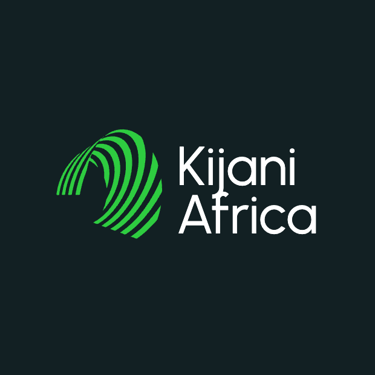Reflections from the London Climate Action Week 2025
An insight into one of the world’s largest climate gatherings, where global leaders, innovators, and changemakers came together to tackle today’s most urgent climate issues. From AI-driven solutions to gender-smart investing and climate finance for emerging markets, the week offered powerful insights and frameworks that could help shape Africa’s green future. Here are my key takeaways from this inspiring experience.
Wassa N. Cisse
7/1/20253 min read


A couple of days ago, London hosted the London Climate Action Week.
It was the largest climate gathering with incredible leaders, activists, politicians, business people, and others driving #ClimateAction across London and the world.
I had the pleasure to be invited and attend discussions, roundtables and sessions on some of my favourite climate topics, but also the most pressing issues of the field. I will not be able to walk you through all 700+ events, but I will highlight the key takeaways of these interactions.
AI & Climate Change:
Al could help mitigate up to 10% of global GHGs by 2030, equivalent to emissions of the. EU.
There is an opportunity to provide quick and affordable climate risk assessments to businesses in emerging markets.
Multiple exciting solutions are being developed:
Gender & Climate Resilience:
This was an insightful session with Leslie Maasdorp, CEO of BII and Lori Kerr, CEO of FinDev Canada. The oldest and youngest of the DFIs spoke about the correlation between supporting women's economic growth and ensuring more resilient communities. Here are my key notes from this session:
The 2x challenge as a criterion is growing and becoming a comprehensive tool to ensure that investments are intentional and tangible impact when it comes to Gender Lens Investing. After engaging for years with the criteria and the extensive training with Value For Women on this topic, I know how important it is for Funds to adopt and align on a framework that can push us all to build a portfolio reflective of our commitment to reducing gender imbalances in our communities.
The case studies from investments made by BII and FinDev were a warm touch to show us all how practical gender lens investment could be and how much difference can be observed at the grassroots level.
New Frameworks & Innovations
GIIN hosted a session on the new Climate Solutions investing framework. The session gathered investors from VC, PE, Family offices and Philanthropy and actors from the public sector. Hearing about how everyone approaches climate solutions investing and how the newly released framework fits into the broader climate finance landscape provided me with great insights on how we could start in West Africa. We will need to consider some additional capital to de-risk these investments, but the framework offers a good starting point.
Barclays, through the Eagle Labs, hosted a session on Climate transition plans. They showcased a wide range of decarbonization solutions, but what struck me was how few of them get to grow. You will easily see some of these decarbonization businesses raising funds from seed to series A, but not further. Investors are reluctant to commit to the unknown. None of these solutions has faced the test of time to build trust in the market. It is still a risk we must take. And this issue is only in the global north. Decarbonization businesses in Africa are barely exiting the early-stage round of fundraising. These investment gaps must be filled.
Lloyds Banking Group launched a new centre of excellence for 𝐕𝐨𝐥𝐮𝐧𝐭𝐚𝐫𝐲 𝐂𝐚𝐫𝐛𝐨𝐧 𝐚𝐧𝐝 𝐍𝐚𝐭𝐮𝐫𝐞 𝐌𝐚𝐫𝐤𝐞𝐭𝐬 (𝐕𝐂𝐍𝐌), embedded within the Sustainability & Client Advisory division. The goal is to reflect the growing importance of carbon and nature-based solutions in helping clients meet their transition goals. I have always dreamed of having nature-based solutions embedded in the services financial professional provide to their client. This center is a great model others can mirror.
Climate finance:
Just Transition in emerging markets: this topic is specifically personal as a citizen of a low-income country. Developing nations are required to rethink their development outside the traditional pathways that developed nations followed. This challenge requires funding that is committed but still to be fully gathered
Climate Compatible Growth programme organised a Round Table Consultation Meeting called From Planning to Finance: Unlocking Investments for Energy Transition in partnership with the UK’s Department of Energy Security and Net Zero. Discussing the type of funding available and seeing how advanced other nations are on this plan is a reminder that we have a long way to go, but there is a way. It is doable.
BII held a Finance Dialogue on Climate and Development. With the current unprecedented changes to the political and operational context for global development and ever-growing climate-related financing needs in emerging markets and developing economies, we explored how strategies for using public finance interventions to drive international climate and development finance mobilisation will need to evolve in the coming years, looking across the overarching political context. One thing was agreed upon: DFIs can only push so far, government interventions and collaborations are a must to derisk investment, but also ensure that the funding dedicated to climate solutions is relevant to each context, and used in the most efficient manner.
As an African professional operating in Africa, the message from this Climate Week is clear: Africa has the opportunity—and growing support—to shape its own climate future. While challenges remain, the frameworks, tools, and global partnerships are emerging to help African countries leapfrog toward a greener, more equitable development path. Finance is available, and momentum is building, but it requires active government leadership, innovative partnerships, and context-specific strategies.
Truly honoured I got to be a part of this, and for the amazing connections I made along the way.
#ClimateChange #LCAW25 #ClimateFinance #JustTransition #Sustainability #ClimateChange #KijaniAfrica #GreenAfrica.
Engage
Exploring Africa's sustainable future through climate finance education and insights.
Innovate
Sustain
© 2025. All rights reserved.
